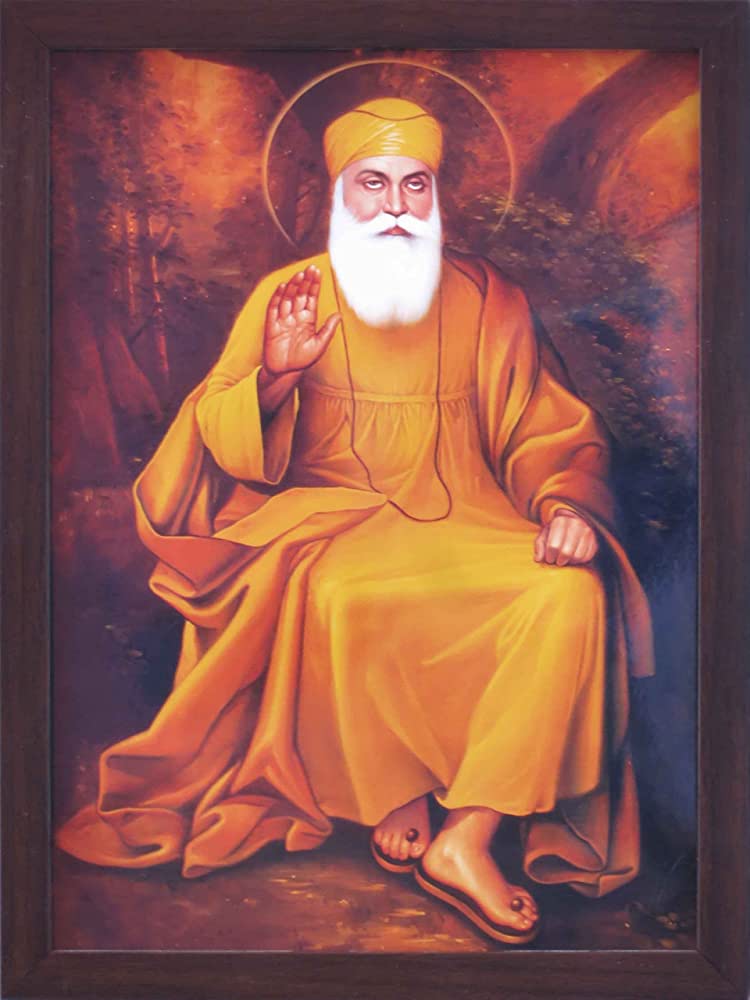Sikhism is a monotheistic religion that originated in India in the 16th century, and its beliefs are grounded in the principles of equality, justice, and selfless service. The core beliefs of Sikhism are: one God, Guru Granth Sahib, karma and reincarnation, Naam Japna, Kirat Karni, Vand Chhako, equality and justice, Seva and Sewa, Five Ks, and Miri-Piri. Sikhs view God as Formless, timeless, and omnipresent. Sikhs consider Guru Granth Sahib as their spiritual guide and ultimate source of wisdom. Sikhs believe in the cycle of birth and death, the law of karma, and the concept of reincarnation. Sikhism emphasizes honest living, selfless service, and the importance of equality and justice for all. By following these beliefs, Sikhs aim to achieve a closer relationship with God and create a more just and harmonious world.
10 Beliefs Every Sikh Must Follow
Sikhism is a monotheistic religion that originated in the Punjab region of India in the 16th century. It is the fifth-largest organized religion in the world, and its beliefs and practices are based on the teachings of the ten Sikh Gurus. The core beliefs of Sikhism are grounded in the principles of equality, justice, and selfless service. Here are ten beliefs every Sikh must follow:
1. One God
The most fundamental Sikh belief is the belief in one God. Sikhs view God as Formless, timeless, and omnipresent, with no gender or human qualities. This belief in one God is known as “Ik Onkar.”
2. Guru Granth Sahib
Sikhs view the Guru Granth Sahib as their living, eternal Guru. The Guru Granth Sahib is a collection of hymns and writings of the ten Sikh Gurus, as well as selected writings of other saints and scholars. Sikhs consider it their spiritual guide and ultimate source of wisdom.
3. Karma and reincarnation
Sikhs believe in the cycle of birth and death, and the law of karma. Karma refers to our actions and their consequences, and it determines our future births. Sikhs believe in the concept of reincarnation, where the soul takes many bodies until it achieves union with God.
4. Naam Japna
Sikhs believe in the practice of Naam Japna, which involves the repetition of God’s name and meditation. By practicing Naam Japna regularly, Sikhs aim to achieve a closer relationship with God and a higher state of consciousness.
5. Kirat Karni
Sikhs believe in the importance of honest living and hard work. The concept of Kirat Karni means earning a living through honest means and sharing the fruits of one’s labor with others. Sikhs believe that work is worship, and it is their duty to contribute to the welfare of society.
6. Vand Chhako
The concept of Vand Chhako refers to sharing with others and helping those in need. Sikhs believe in the importance of selfless service and sharing their wealth and resources with others. This belief is embodied in the practice of langar, where Sikhs provide free meals to anyone who visits a gurdwara (Sikh place of worship).
7. Equality and justice
Sikhs believe in the principle of equality and justice for all. Sikhs do not discriminate based on caste, creed, gender, or religion. This belief is embodied in the practice of Langar, where everyone sits together and eats the same food, regardless of their social status or background.
8. Seva and Sewa
The concept of Seva and Sewa refers to selfless service and helping others. Sikhs believe in the importance of serving others without any expectation of reward or recognition. Sikhs practice Sewa by volunteering their time and resources to help those in need, such as by offering their services at a gurdwara or serving in a charity organization.
9. Five Ks
The Five Ks are the physical symbols that Sikhs wear as a reminder of their faith and commitment. These are Kesh (uncut hair), Kangha (a small comb), Kara (a steel bracelet), Kachera (cotton underwear), and Kirpan (a ceremonial sword). The Five Ks symbolize discipline, spirituality, and a readiness to defend the weak.
10. Miri-Piri
Sikhs believe in the principle of Miri-Piri, which means the integration of spiritual and political power. Sikhs believe in the importance of both spiritual and worldly affairs. Sikhs have a history of standing up for justice, defending the weak, and fighting against oppression.
Conclusion
Sikhs believe in the principle of oneness and the equality of all human beings. Sikhs strive for a balance between spiritual and worldly affairs and believe in the importance of selfless service and helping others. By following these ten beliefs, Sikhs aim to achieve a closer relationship with God and create a more just and harmonious world.
